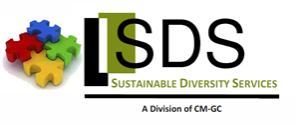SUSTAINABLE DESIGN
Sustainable design finds ways to minimize any negative impact on the environment while improving the health and comfort of building occupants and enhancing building performance. Key objectives of sustainability include; reducing consumption of non-renewable resources and minimize waste, while creating healthy, productive environments. Sustainable design principles include the ability to:
- optimize site potential;

- minimize non-renewable energy consumption;
- use environmentally preferable products;
- protect and conserve water;
- enhance indoor environmental quality;
- optimize operational and maintenance practices.
We employ many “Green” concepts as standard practice on our projects. Utilizing a sustainable design philosophy encourages decisions at each phase of the design process that will reduce negative impacts on the environment and the health of the occupants, without compromising the bottom line. It is an integrated, holistic approach that encourages innovation.
Such an integrated approach positively impacts all phases of a building’s life-cycle, including design, construction, operation and decommissioning. Sustainable design goes beyond being just efficient, attractive, on time and on budget. It is a design that cares about how such goals are achieved, about its effect on people and on the environment. As environmentally responsible professionals, CM-GC makes a commitment to constantly find ways to incorporate the principles of sustainable design and energy efficiency into all of our projects.
CM-GC has a wide array of experience working with clients on sustainable concepts. CM-GC is committed to advancing our knowledge of sustainable technology to assist our clients in building environmentally conscious facilities. We actively seek innovative solutions that support sustainable construction, delivering environmentally responsible best practices to our clients.
RENEWABLE ENERGY
Renewable Energy comes from natural resources such as sunlight, wind, rain and geothermal heat. These sources of energy are naturally replenished. SES provides consultation, design and installation of renewable energy sources including; Solar Energy, Geothermal Energy, Wind Turbines and Electric Car Charging Stations for Commercial, Industrial and Residential projects.
VALUE ENGINEERING
Value Engineering (VE) is a disciplined approach that examines alternatives to search for “the second right answer”. The VE process identifies opportunities to remove unnecessary costs while ensuring that quality, reliability, performance and other critical factors will meet or exceed the client’s requirements. VE is an effective tool that saves money, adds value, increases quality and reduces the life cycle cost of a facility. VE is a formal, logical and analytical process by which multi-disciplined teams seek the best balance between a project’s required functions and its life-cycle cost.
VE can be effectively used throughout the life of a project; during the planning, conceptualization, design, construction, or operations and maintenance (O&M) phases. VE studies are often performed in conjunction with constructability reviews, especially on complex projects, to find alternatives that cut costs while increasing value. VE studies typically consist of five phases: Identification of Potential, Analysis of Functions, Generation of Ideas, Evaluation of Ideas, and Development of Recommendations. At the end of each study, CM-GC gives the client recommendations that are likely to result in value enhancements. CM-GC utilizes a multi-disciplined team to analyze each projects specifications, processes and products.
DIVERSITY & INCLUSION PLANNING
CM-GC is an experienced Diversity and Inclusion Manager with a track record of success. As a Minority Business Entity (MBE) and a Women’s Business Enterprise (WBE), CM-GC is committed to diversity and inclusion. We provide a 100% MBE /WBE Tier 1 contractual relationship as will as bring Tier 2 and 3 MBE/WBE and SBE subcontractors and suppliers to all of our projects. CM-GC provides diversity and inclusion planning that includes:
- Vendor/supplier/subcontractor identification and due diligence
- Vendor/supplier/subcontractor relationship management

- Strategic partnership development
- Partner goal setting and attainment
- Technical assistance and systems training
- Bid package planning and review
- Performance metrics and data tracking
We develop an inclusion plan that establishes an expected minimum percentage of diverse subcontractors and suppliers to be used on each project. We work with each subcontractor/supplier to ensure MBE/ WBE/SBE participation. We show our subcontractors how the development of long-term relationships with MBE/ WBE/SBE firms will help them meet inclusion goals while expanding their markets and providing capacity growth to the minority partner without compromising quality of work solutions. We help them develop and benchmark qualified and diverse third-tier subcontractors and supplier’s relationships through joint ventures and partnerships.
We also work with each of the subcontractor team to set measurable goals; specifically for the development of the MBE/WBE/SBE firm. All of these efforts contribute to the overall growth of our local economy and contribute to the improvement of our communities. MCP tracks work force inclusion numbers for Male, Female and Ethnicity on all of our projects. We prepare reports for our clients benchmarking all results year on year with gap closure improvement plans.





